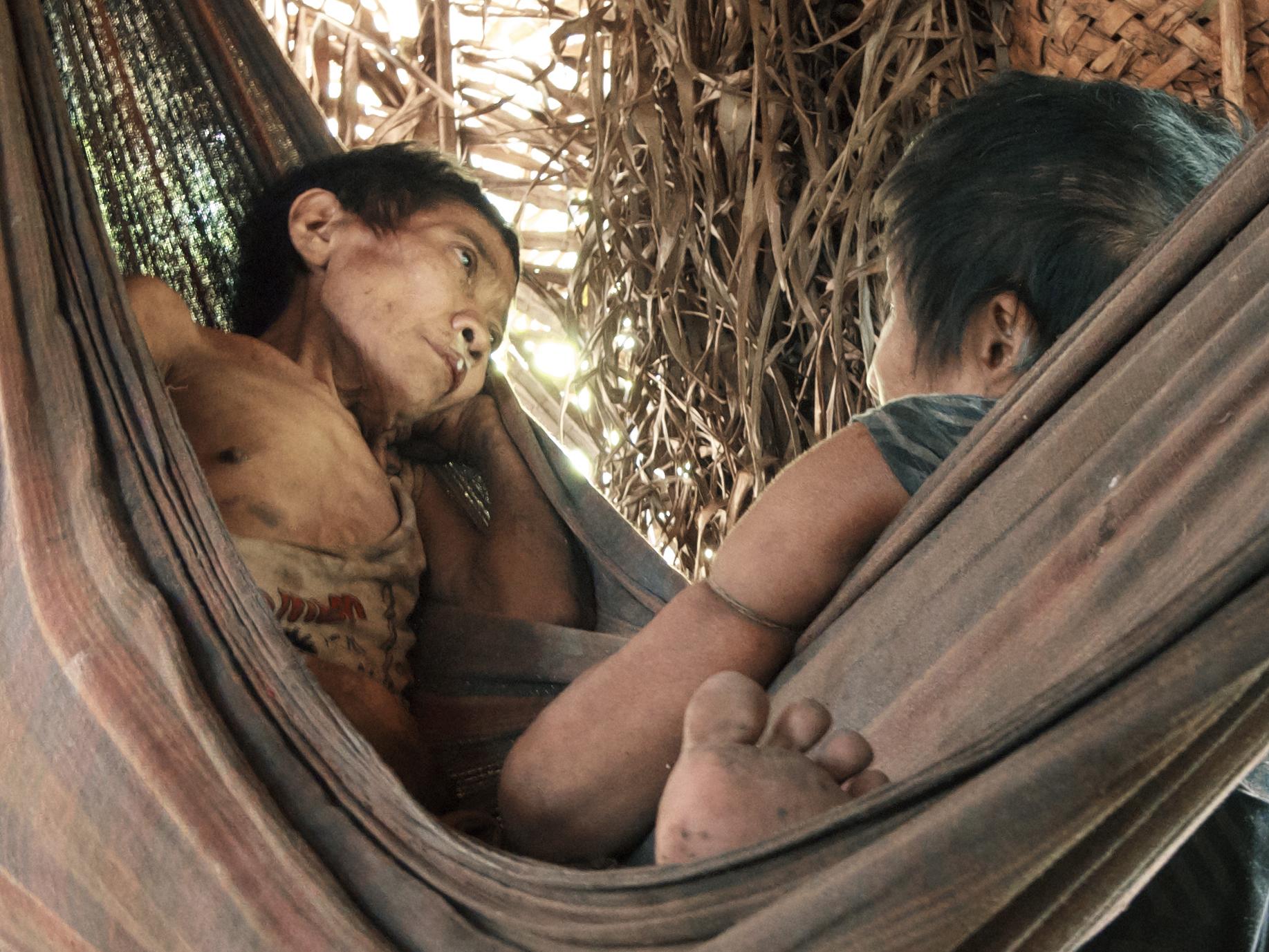Awá Amazon tribeswomen reject civilisation and escape to forest
'What is important for them is not television. What is important for them is to be in their home, in the forest, with plenty of hunting, with rivers, with the animals'

In December 2014, three "non-contacted" Amazon tribespeople -- a young man, his mother and an elder female relative -- were led out of the forest they had lived in their whole lives and taken to a village.
A year and a half later, in an extraordinary twist, the two women have escaped back to the forest -- taking just an ax, a machete and their pet birds. They left clothes they had been wearing strewn on a path -- and their escape left a very clear message.
We don't want your civilisation. Instead, we choose our ancient way of life.
"It was a rejection," said Rosana Diniz, a coordinator for the Indigenous Missionary Council, a nonprofit group connected to Brazil's Bishops, who has worked with the women's tribe, called the Awá, for nearly 20 years.
"What is important for them is not television," said Diniz. "What is important for them is to be in their home, in the forest, with plenty of hunting, with rivers, with the animals."
The Awá is an endangered tribe of about 450 people who mostly live in villages in three reserves on the southeastern fringe of the Amazon. But an unknown number of others, like these three, still live an ancient hunter-gatherer existence.
The Brazilian government has registered 110 "uncontacted" groups in the Amazon who are increasingly threatened by illegal logging, mining and farming.
Today the Awá practice some farming, but most still hunt with rifles -- sometimes heading out for days at a time. The two women, Jakarewãja, in her 40s or 50s, and Amakaria, who is about 60, and Jakarewãja's son Wirohoa, in his 20s, were found by an Awá hunting party in December 2014.
They lived in a hut made of palm fronds, hunted with bows and arrows and collected fruits. The only modern possessions they had ever had were a slither of a knife blade, an ax, and an old pot with a hole in it they had picked up during a brief stay in a village, when Wirohoa was a small child, he told The Washington Post in an interview last year.
Threatened by loggers inching ever closer into their protected, 668-square-mile reserve, called Caru, the three were persuaded to come back to a village where the tribe has electricity, rudimentary health care -- and television.
But the two women fell seriously ill with tuberculosis. All three were taken by helicopter to a nearby city, where Jakarewãja and Amakaria spent months in a straw hut built on the grounds of a hospital.
They later returned to live in the village of Tiracambu, where Wirohoa has settled down with an Awá woman. He is believed to still be in the village.
Diniz said the women were reclusive and complained about the number of non-indigenous visitors, the food and medicine they were given by government health workers, and the heat in the tin-roofed metal hut they had shared with two other families.
A new hut was built for them, with a palm-frond roof. But sometime in the first week of August, they left, said Diniz, who found them gone when she visited shortly afterwards. Now they face new dangers -- fires have decimated parts of their reserves, reducing prey, and farmers and loggers are encroaching.
Threats like these can mean that "life is tough in the forest. But even so, Jakarewãja and Amakaria clearly prefer that life to the life in the community," said Sarah Shenker, a campaigner with Survival International, a London-based group that works for tribal peoples worldwide.
Shenker met the women in April 2015, when both were too sick to move and too scared to speak. That they headed back to their old existence shows how important forests are to uncontacted peoples, she said.
"Now it's a matter of protecting their lands," she said.
Washington Post
Subscribe to Independent Premium to bookmark this article
Want to bookmark your favourite articles and stories to read or reference later? Start your Independent Premium subscription today.

Join our commenting forum
Join thought-provoking conversations, follow other Independent readers and see their replies